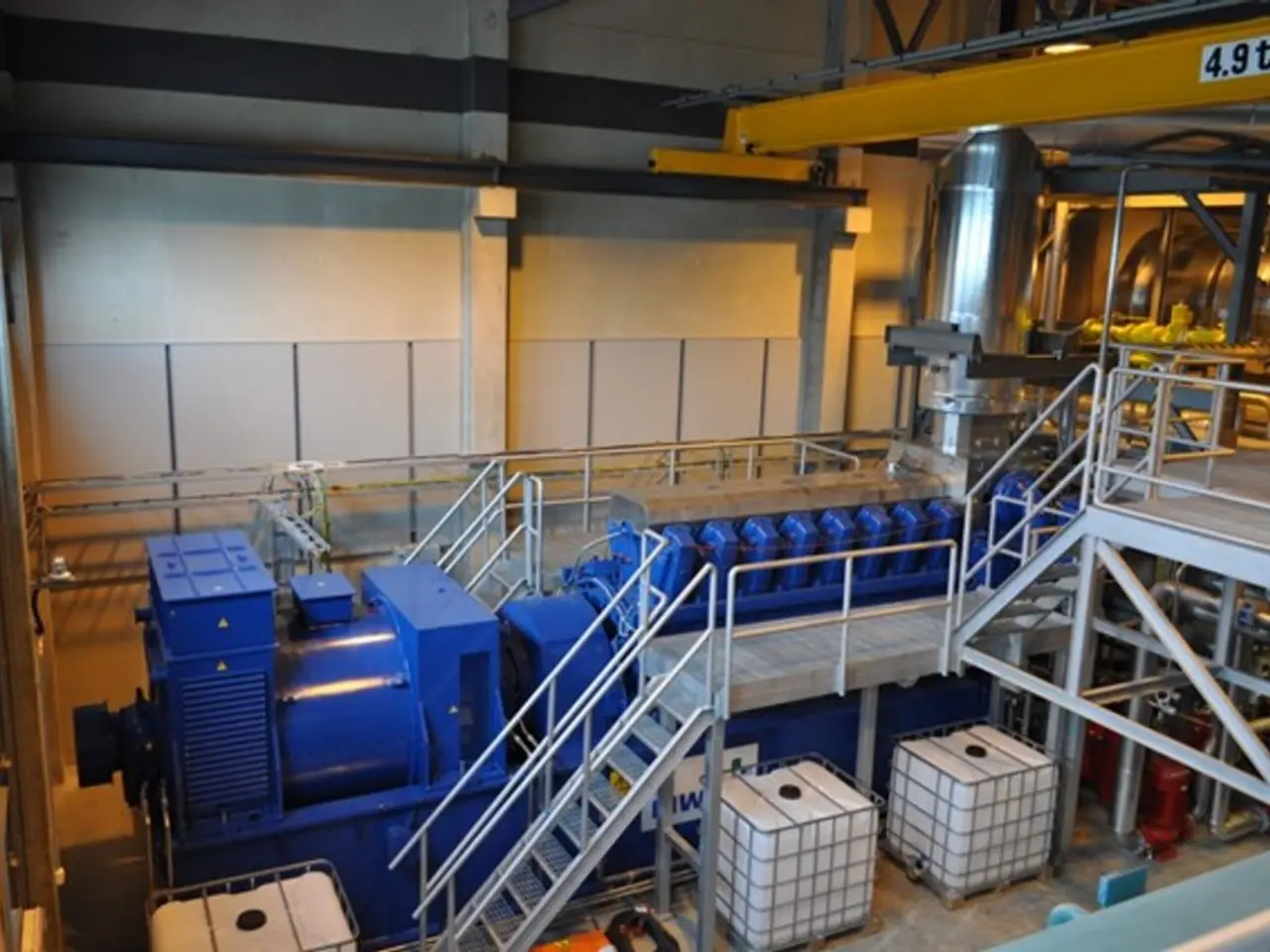Development of Air Cargo Transportation in Spain
In the heart of Europe, Spain's air freight industry is experiencing a significant surge, driven primarily by the burgeoning e-commerce sector. The rise of online shopping has spurred a demand for faster and more reliable delivery services, leading to an increase in the volume of goods transported by air.
Madrid-Barajas airport, Spain's busiest cargo hub, handled over 400 million kilograms of goods in 2020, underscoring the industry's growth. Key players in this dynamic landscape include Iberia Airlines, JAS Worldwide Spain, and the International Airlines Group (IAG).
Iberia Airlines, the leading Spanish airline, operates extensive cargo services alongside passenger flights. IAG, the parent company of Iberia and Vueling, dominates the air passenger and cargo market in Spain. JAS Spain, a major logistics provider, specialises in freight forwarding and supply chain solutions, with a focus on technology-driven logistics essential for e-commerce operations.
The influence of e-commerce extends beyond the demand for cargo, necessitating integrated logistics solutions that seamlessly combine air transport with technology platforms for omnichannel support. Despite global air cargo experiencing fluctuations due to trade policies and external disruptions, Europe's air freight demand, including Spain, has shown a modest increase, reflecting resilience amid supply chain challenges.
Several models of aircraft are employed for the transport of goods, ranging from small aircraft like the Cessna Caravan to giant freighters like the Antonov An225. The main air cargo centers in Spain are Madrid-Barajas, Barcelona-El Prat, Zaragoza, and Vitoria airports.
Notable companies transporting air freight to and from Spain include DHL and Iberia. In certain regions, planes are the only means of access. Air freight is ideal for high-value finished products and urgent goods, but not for bulk, low-value, high-weight, or high-volume goods due to technical or cost reasons.
The global crisis caused by the Coronavirus pandemic has underscored the importance of air freight, with growth of up to 30% globally during the first half of 2020 for urgent transport of medical material. The air transport of goods offers punctuality and speed, with the possibility of transporting goods to any place in the world within 24 hours.
As the industry continues to evolve, technology plays a central role in meeting the rapid delivery expectations of online retail. Companies like DHL and JAS Spain emphasise technology-driven logistics for speed, accuracy, and visibility, crucial for e-commerce operations. The airline industry is expected to rebound when economic conditions improve, with significant support from world governments and the European Union.
In Spain, air freight has been growing exponentially over the last few years, with companies like Inditex, a major player in the textile sector, transporting 97% of its goods traffic at Zaragoza airport, as 40% of the 350 million garments it distributes each year are transported by air. The Lufthansa Group, which includes Swiss, Austrian, Brussels Airlines, and Eurowings, has Inditex, Airbus, Grifols, Novartis, VW, Nissan, and BASF as its customers.
Lufthansa Cargo often transports products in passenger planes but offers service through its subsidiary and a fleet of 6 MD11 planes and 7 Boeing B777 Freighter. The increasing use of the Internet and e-commerce has driven the growth of air cargo in recent years. The safety of air transport is high, with only 6 accidents on cargo flights worldwide in 2019.
In summary, the growth of e-commerce in Spain has propelled air freight volumes primarily through major carriers like Iberia and logistics firms such as JAS, leveraging key hubs like Madrid-Barajas airport to manage increased cargo traffic effectively. The sector continues to evolve with technology playing a central role in meeting the rapid delivery expectations of online retail.
In light of the growth of e-commerce, key players such as Iberia Airlines and JAS Spain, equipped with technology-driven logistics, are pivotal in managing Spain's burgeoning air freight industry. Madrid-Barajas airport, as a crucial hub, handles a significant volume of goods, supporting Spain's business and finance sector in this digital age.




